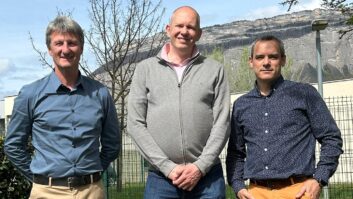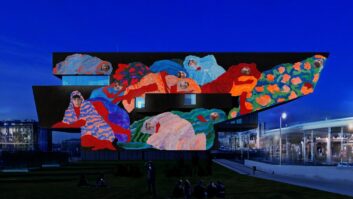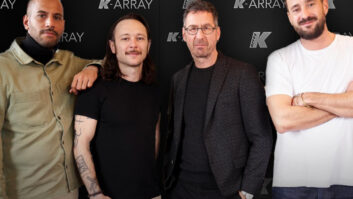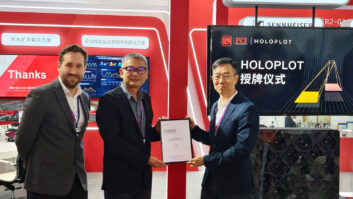For many developing European nations, membership of the European Union has come to be regarded as a sign of maturity, and one that has true global impact. After years of hard-fought economic and political reform, so the rationale goes, accession to the EU provides a clear division between past and future.
Once membership has been achieved, the next destination is likely to be the eurozone. Despite the fact that EU members are, in theory, required to adopt the euro currency once framework requirements are met, nearly half of EU nations continue to use their own currency. There is noticeably greater enthusiasm for the euro among the more recent additions, possibly underpinned by an expectation that greater international trade links will ensue.
At a time when the full extent of the global economic crisis is still yet to become clear, it is not easy to predict the euro’s long-term future. However, with many national
currencies ailing, it is possible that some EU countries hitherto resistant to the euro may be prompted to reconsider their positions. Any such changes could obviously have profound effects for the business community – including the professional installation sector.
In the hope of obtaining some insights into this often-problematic union, IE resolved to undertake a survey of market conditions in the two most recent additions to the EU – Romania and Bulgaria – and the two nations likely to join next, namely Croatia and the Republic of Macedonia.
Croatia could be a part of the union by 2011, subject to the conclusion of accession talks by the end of 2009 and the ratification of its accession treaty by all 27 EU member states. The outlook for Macedonia is less clear, with a recent European Commission progress report concluding that the country does not currently meet the political criteria necessary to begin membership talks. Nonetheless, many observers believe that it will eventually secure entry to the EU clubhouse.
For additional flavouring, we also decided to add Slovakia to the mix, on the basis that – five years after joining the EU – the country adopted the euro on 1 January 2009.
Romania
Having become NATO members simultaneously in March 2004, Romania and Bulgaria both joined the EU at the beginning of 2007. But while the countries’ accession to international organisations may incline towards synchronisation, their economic outlooks contrast sharply.
For Romania, the past few years have seen a remarkable increase in prosperity. Possessing a population of more than 21 million, the country has experienced sustained economic development over the past decade, with annual growth rates of more than 5% becoming the norm. Backed by healthy agricultural, industrial and export sectors, Romania continues to maintain low rates of unemployment and inflation.
It’s an encouraging picture, and one that has impacted positively on fixed installation. “The business is growing [in line] with the economy,” confirms Cornel Petcu, marketing executive of Bucharest-based HSA Audio. “For example, clubs are starting from scratch and improving their sound quality and interior design. The expectations of new projects are becoming more and more complex.”
In addition to distribution responsibilities for DYNACORD, Electro-Voice and Midas/Klark Teknik, the company also works as an audio dealer and installer, and has more than 250 bar and club projects to its credit, including a recent engagement at Bucharest’s Kristal Glam Club, which centred around the installation of DYNACORD alpha loudspeakers and PowerH amplifiers.
“In terms of clubs, we are the leaders in Romania and have won more than five awards in the past six years,” says Petcu. “Right now, we are looking for growth in shopping malls, stadiums, rail/bus stations, airports, schools, hospitals and government buildings.”
In terms of the wider Romanian market, Petcu isolates equipment piracy as a challenge to be overcome, but nonetheless sounds optimistic about the future. “The installation business will grow with [further] investments and developments,” he says. “Romania is still a virgin market at this point for large industry.”
Anolis, an architectural lighting division of Robe Lighting, also recognises the long-term potential of the Romanian market. Based in the Czech Republic, Anolis offers a variety of top-end LED products for both indoor and outdoor use, and has a string of major international installations to its credit. The company is currently involved in a major shopping mall installation in Bucharest, and is hopeful of more Romanian projects receiving the go-ahead in the near future.
“The way that things are going right now, Romania could be a significant market,” says John Saunders, product manager for Anolis. “In fact, we expect to see a significant increase across Central and Eastern Europe during 2009, and this has informed our projected budgets for the year.”
Demand for the kind of high-end architectural lighting systems manufactured by Anolis is on the rise not just in Romania, but in many of the surrounding countries. “There is a lot of competition at the lower end of the market, so our approach is to position ourselves as providers of higher quality designs for large-scale installations,” explains Saunders.
Bulgaria
Meanwhile, Romania’s companion in the EU adventure has been dealing with more problematic circumstances. Although Bulgaria (population: 7.6 million) has lately been registering consistent economic growth, it remains one of the poorest EU member states. Healthy agricultural and industrial sectors offer reasons for optimism – as does the country’s increasing popularity among big-name multinationals in search of a jumping-off point for further European expansion – but adoption of the euro is still three years away, at best.
Nonetheless, Georgi Hlebarov, founder and managing director of Sofia-based acoustical design and installation company ATC Ltd, is convinced that EU membership has had a positive effect throughout the Bulgarian business world – including the installation sector. “I think life as a whole in the country has changed a little bit, in the right direction,” he says. “The country is now much more open to Europe, and Bulgaria has a higher profile internationally.”
It’s certainly proving to be a boom time for ATC. The company has doubled its business each year for the past two years, and is continuing to develop its interests in a variety of installation sectors – not least residential. Indeed, Hlebarov is currently working on a new demonstration facility designed to publicise the benefits of home automation technology.
“In the spring, we plan to install a fully automated system covering blinds, lights, water supply and more,” he says. “The residential market is still fairly new in Bulgaria, and it’s important to show people what this kind of technology can do.”
A lengthy roll-call of recent projects includes two integrated press centres, including one for the Ministry of Transportation in Sofia. Both are centred around equipment from AMX and Lutron. The company also regularly specifies technology from Yamaha Commercial Audio, among many other prominent brands.
Looking forward, Hlebarov is confident that the Bulgarian installation market can continue to prosper, despite the economic downturn. The construction industry is experiencing difficulties, but the financial sector – a primary architect of many other countries’ current woes – is not nearly as developed as in some Western European nations.
In any case, Hlebarov doesn’t want to take on too much extra work at this stage. “This year, I want to keep growth on the same level,” he says. “It would not be good for me to grow the business too rapidly; we really want to remain a small, flexible company.”
Accordingly, ATC’s strategy is to outsource for additional labour as and when required. “It makes sense for us, although it’s vital to ensure that quality is maintained at all times,” says Hlebarov.
Based in Plovdiv, Bulgaria’s second-largest city, communication systems and IT distributor, installer and service company Universal K is also making the most of the new opportunities. “The business is definitely growing,” confirms general manager Katya Krasteva, who refers in particular to a dramatic rise in demand for multimedia projectors.
Notable recent projects for the company – which serves as a distributor for companies including Mitsubishi Electric and Polycom – include the supply and installation of 7,300 multimedia projectors (Mitsubishi Electric models SD430U and SD510U) to schools located throughout Bulgaria.
“We are also involved in control room installations in the gas and transport industries, and carry out videoconferencing projects, among others,” adds Krasteva.
Croatia
Along with the Republic of Macedonia, Croatia is generally regarded as next in line to join the EU. While deficiencies in the public service infrastructure continue to cause serious problems, the country, which has a population of 4.4 million, is home to a stable economy and continues to derive good returns from tourism, shipbuilding, clothing and the chemical industry. The next significant development on the international stage is likely to be membership of NATO, which is expected to take place later this year.
As an AV installer and distributor with responsibilities for major-name brands including L-Acoustics, Barco and Extron, Split-based DICROIC is well placed to track the development of the Croatian business. Established in 1993, the company specialises in the provision of turnkey professional audio, video and lighting solutions, working on projects involving sports facilities, clubs, theatres, broadcast complexes, conference centres and more.
Slaven Tahirbegovic – project manager at DICROIC – acknowledges that Croatia’s installation market can be a challenging place. “In the field of professional AV, there are not enough educated technicians and engineers. The amount of money available for a project can also be an issue,” he observes.
Despite this, he foresees major opportunities in the near future, not least with regard to new luxury hotels and conference centres. Indeed, the company has recently completed a major project at Split’s five-star Le Meridien Grand Hotel Lav, which was presented with a prestigious World Travel Resort award for its conference facilities. Other notable commitments include the design and installation of Spaladium Arena (see case study, page 20).
“We are covering a huge area in professional AV and multimedia, and we will continue to provide a variety of solutions – including major sound systems, LED displays and congress systems – as we go on growing the business,” says Tahirbegovic.
Croatia is also generating some important commitments for Anolis, which is working on a trio of major projects in the country, including a shopping complex and an arena. “We do have a slight advantage in this region as we manufacture out of the Czech Republic, although most of the major projects that appear to be materialising are really specified through the UK,” notes Saunders. “However, there is a lot of development going on now – no doubt about it. As to whether that is affected by the economic situation, well, I suspect that your guess is as good as mine.”
Macedonia and Slovakia
Although beset by high levels of unemployment, the Republic of Macedonia (population: 2 million) continues to develop, recording more than 3% annual economic growth since 2005. The country’s service and industrial sectors are particularly robust, while iron, steel and vegetables are among its top-performing exports. Like Croatia, the Republic of Macedonia is a candidate to join both the EU and NATO.
“It’s not a country that we have focused on to date, but there is no reason that it should not generate opportunities in the future,” says Saunders from Anolis. “Like many other countries in this region, it is developing quickly, and that will mean a greater demand for high-quality equipment.”
A combination of low tax rates, low labour costs and a highly educated workforce have made Slovakia (population: 5.4 million) a popular destination for foreign investors. With an increasingly well-developed economy, Slovakia recently ceased to receive aid from the World Bank after many years. As a further indication of its growing success, the company joined the eurozone on 1 January, having commenced EU membership in 2004.
Judging by the comments offered by a representative of a major international pro-audio company, however, this new phase of development may not be entirely welcome. “All I hear is that prices of food and labour will go up,” says the representative, who prefers to remain anonymous. “Rental companies will feel their cost of labour go up, but they don’t expect that the rates they can charge for rentals will go up that much. Slovakian rental companies are more nervous about joining the euro than they are excited about it. However, as far as I can tell, it has no impact on us directly.”
At the end of this brief tour, the overriding impression is one of vibrant emerging markets caught in the midst of strange, unprecedented times for the global economy. Such is the fast-changing nature of the economic crisis, that it is impossible to make confident predictions about the probable short-to-medium-term impact on these countries.
In the longer term, however, the high levels of enthusiasm exhibited by both domestic players and international companies about significant areas of Central and Eastern Europe are almost certain to bode well for the future of the installation business. Complex audio, video and lighting installations are increasingly commonplace, particularly in Romania and Croatia, and there is no reason to suspect that this drive towards high-end solutions will not intensify in the future. IE







